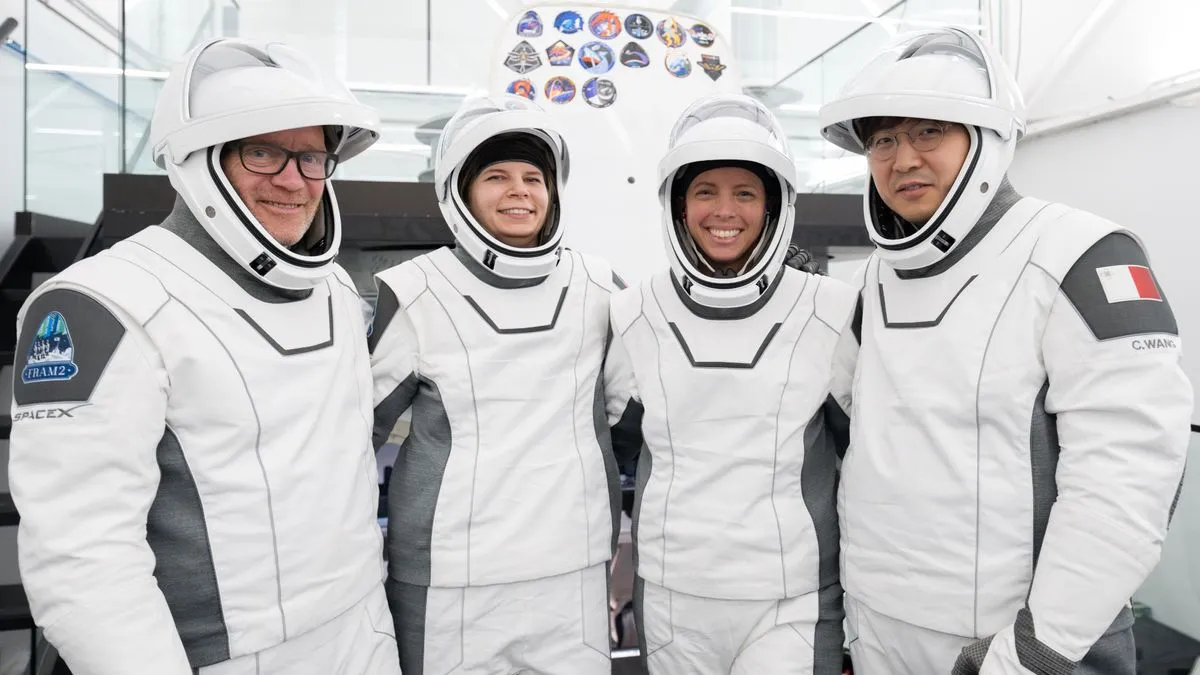
The Fram2 mission, a groundbreaking venture funded by private sources, is poised to become the first human spaceflight to traverse over Earth's polar regions. Set to launch no earlier than Monday, March 31, this pioneering mission will carry a crew of four astronauts on an approximately four-day orbital journey. The mission will utilize SpaceX's Crew Dragon capsule, named Resilience, which will also transport a range of scientific experiments aimed at enhancing our understanding of space and its environment.
The Fram2 mission represents the sixth private astronaut mission conducted by SpaceX and marks the fourth launch of the Crew Dragon capsule Resilience. This mission is particularly significant as it symbolizes a new era in space exploration, following a long-standing tradition of privately funded polar expeditions. The name "Fram" pays homage to a Norwegian ship that explored the Arctic and Antarctic regions during the early 20th century, establishing a historical connection between past exploration and modern-day space travel.
As we approach the launch date, it's essential to introduce the remarkable crew members who will embark on this historic journey:
Chun Wang Jannicke Mikkelsen Rabea Rogge Eric PhillipsThis diverse team of astronauts is ready to take on the challenges of space exploration as they prepare for their unprecedented flight over Earth's polar regions.
Notably, three out of SpaceX's five previous private astronaut missions visited the International Space Station (ISS). These missions, known as Ax-1, Ax-2, and Ax-3, were organized by Axiom Space, showcasing the increasing collaboration between private companies and space agencies. The Fram2 mission builds on this legacy, pushing the boundaries of human spaceflight and paving the way for future explorations beyond our planet.
As we eagerly anticipate the launch of the Fram2 mission, the world watches with fascination. This mission not only represents a technological achievement but also highlights the growing role of private enterprises in shaping the future of space exploration.